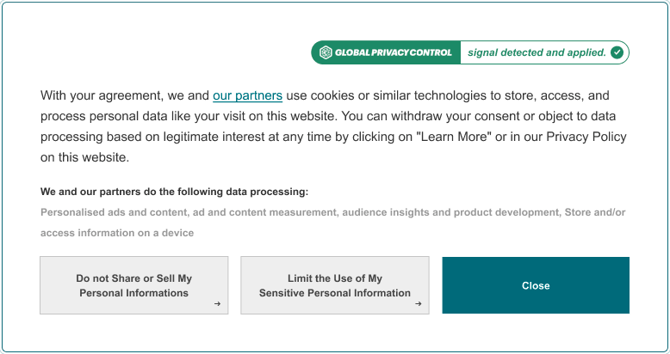California Privacy Rights Act - CPRA
Territories set by default California, United-States
Recommended purposes
- Sell my personal information
- Share my personal information
Recommended SPIs
- Use information that reveal my data for social security, driver's license, state identification card, or passport number
- Use information that reveal account log-in, financial account, debit card, or credit card number in combination with any required security or access code, password, or credentials allowing access to an account
- Use information that reveal mental or physical health condition or diagnosis
- Use information that reveal precise geolocation
- Use information that reveal sex life or sexual orientation
- Use information that reveal racial or ethnic origin, religious or philosophical beliefs, or union membership
- Use information that reveal mail, email, and text messages unless I am the intended recipient of the communication
- Use information that reveal my genetic data
- Use information that reveal my biometric data for the purpose of uniquely identifying an individual
Integrations
| IAB TCF | No |
| Google Consent Mode V2 | No |
| GPP | Yes |
| GPP String documentation | California |
Notice example

GPC signal
Global Privacy Control (GPC) is a privacy signal supported by several browsers for users to specify at the browser level that they do not want their data to be processed (more details about GPC and supported browsers available in GPC specifications).
Didomi CPRA notices support GPC automatically.
As soon as the signal is detected, your CPRA notice is adjusted to respect the user choice via GPC:
- A "GPC signal detected" icon is displayed in the notice.
- All personal information will be set to Do not sell / Do not share.
- Instead of Agree and Close there will be a Close button.

There is no option to configure GPC, the integration is directly enabled in the notice.